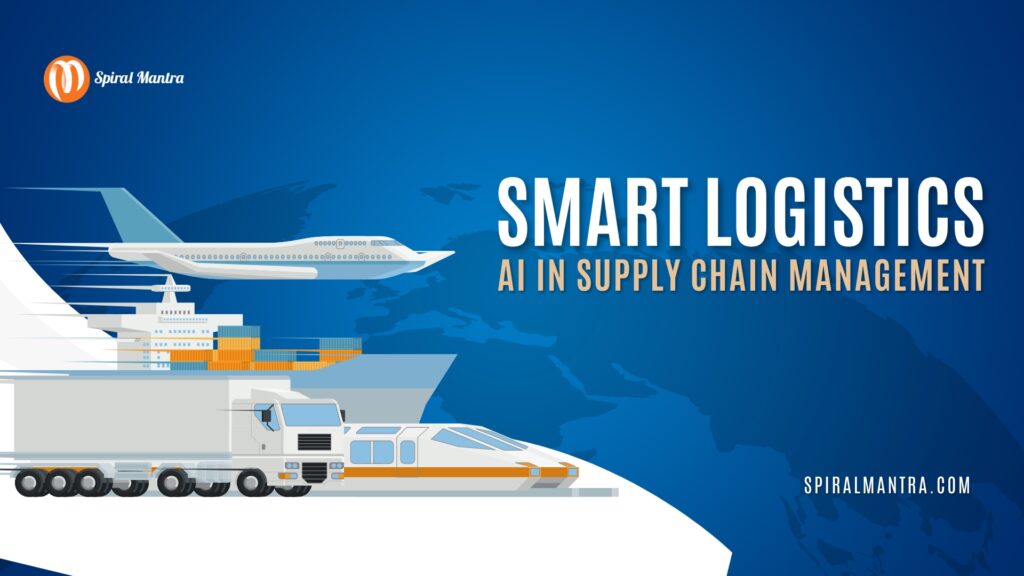Supply chain management is an important aspect of the logistics industry. Supply chain disruption caused by the pandemic negatively impacted businesses across the globe. It started to bounce back with the advent of artificial intelligence. Meticulous Research's recent report has projected that
AI in the Supply Chain Market will reach $41.23 billion by 2030, at a CAGR of 38.8%. From vendor management to optimizing delivery time, it is reshaping the process of supply chain in the logistics industry. In this article, we will explore how AI technology will transform the supply chain operations and your logistics business.

Source: Meticulous Research
How is AI transforming the Supply Chain Management in the Logistics Industry?
The rise of artificial intelligence brought a new wave of revolution in the industry. The demand for AI-based solutions for the supply chain is growing exponentially. According to
KPMG, in 2024, 50% of supply chain firms will invest in solutions that enable AI and advanced analytics capabilities.
Vendor Management
AI-based software solutions can help your business in smart vendor selection. It utilizes the AI algorithm to evaluate the historical data based on performance, pricing, and potential risks to identify the best vendor for your logistics business. It ranks the vendor according to the performance metrics to determine the most reliable vendor at a cost-competitive price. The software can also generate a list of alternative suppliers in case of any disruption in the supply chain. This will help you in making data-driven decisions in identifying reliable suppliers and strategic partners.
Warehouse Management
According to Gartner’s recent report, entitled “
Supply Chain Executive Report: Future of Supply Chain 2024,” 40% of the high performers have incorporated AI and ML for demand forecasting. AI-driven supply chain uses machine learning algorithms to analyze demand patterns, product features, and storage capacity based on past data. It will help your business in demand forecasting and inventory management in real time. This will facilitate the reduction of obsolete products, optimal stock levels, and minimize stock-outs. It will assist your business in predictive maintenance by predicting equipment failure and scheduling timely maintenance. This will benefit your logistics business by decreasing manual errors and streamlining
warehouse management.
Reduce Operational Cost
In our experience, integrating artificial intelligence in supply chain operations can help your business reduce operational costs by 15%-20%. It anticipates demand trends through predictive analytics which can help your business in adjusting inventory levels, reducing excess stock, and related carrying costs. Adopting AI and
ML enables your logistics business to optimize routes, thereby, enhancing travel routes, lower fuel consumption, and reducing overall transportation costs. Its ability to predict equipment failure and proactively schedule maintenance helps you save downtime expenses.
On-time Delivery
Machine learning algorithms analyze large volumes of data to determine factors like traffic patterns, weather conditions, and delivery routes to anticipate traffic jams or road closures. It will help you optimize the route by identifying the most efficient delivery route rerouting during traffic jams or road closures. By employing AI technology you can monitor shipping routes in real-time, delivering precise and timely information on shipments' status. This enables your logistics business to resolve any disturbances or bottlenecks in the supply chain, resulting in seamless and timely delivery to customers. Overall, AI's predictive skills and tracking technologies enhance efficiency and customer satisfaction.
Enhance Safety Mechanism
AI-powered robots are integrated with computer vision sensors and machine learning capabilities which enables them to move through complex environments, identify inventory items with high precision, avoid obstacles, and handle material packaging. It can also predict potential risks and mitigate safety hazards like machine malfunction and unhealthy working conditions. This will alert you regarding potential threats or any irregularity in safety practice. It will help you quickly resolve the issues, take data-driven measures, and enhance the overall safety mechanism.
Final Words
The emergence of artificial intelligence has been a game-changer in
supply chain management for logistics businesses. It has helped our clients in vendor management, route optimization, warehouse management, and enhancing safety in the warehouse. Schedule a meeting with our experts to learn more AI benefits for your logistics business and how can our AI-driven approach help boost your business. Spiral Mantra is a leading
software development company with successful partnerships with Fortune 500 companies, enterprises, and startups.

